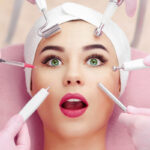THE WHAT? Dabur India, a prominent player in the consumer goods sector, has reported a notable 16.2% increase in fourth-quarter profit, exceeding analyst expectations due to strong domestic demand and decreased operational costs.
THE DETAILS For the quarter ending March 2024, Dabur India announced a net profit of 3.50 billion rupees ($41.9 million), up from 3.01 billion rupees the previous year, surpassing the LSEG forecast of 3.44 billion rupees. This growth comes amidst a challenging environment marked by slowing volumes, heightened domestic competition, and ongoing inflationary pressures that have notably affected the consumer goods sector in India.
THE WHY? The company’s revenue saw a modest rise of 5.1% to reach 28.15 billion rupees. A significant contributor to this increase was the consumer care segment, which accounts for 79% of the total revenue and saw a 6% rise during the quarter. Additionally, a 16% reduction in the cost of raw materials significantly bolstered Dabur’s bottom line. Following the announcement, Dabur’s shares experienced a notable increase, climbing by as much as 5.6%, in stark contrast to the overall sector performance.
The broader Indian consumer goods market has faced challenges, including sluggish rural demand and inflation. However, analysts are optimistic about a potential revival in rural spending towards late 2024, buoyed by expected increases in farm incomes from the monsoon season. In contrast to Dabur’s success, competitors such as Hindustan Unilever have reported declines but anticipate a recovery in rural sales, whereas Nestle India also surpassed profit expectations due to strong demand.
Clinical aesthetics products refer to a category of products used in the field of medical aesthetics or cosmetic dermatology. These products are typically designed and formulated to be used under the supervision of healthcare professionals, such as dermatologists, plastic surgeons, or trained aestheticians. They are distinct from over-the-counter cosmetics in that they often contain active ingredients or formulations that require expertise in their application or administration.
Examples of clinical aesthetics products include:
-
Dermal Fillers: Injectable substances used to add volume, smooth wrinkles, and enhance facial contours. Examples include hyaluronic acid fillers like Juvederm and Restylane.
-
Botulinum Toxin (Botox): Injectables that temporarily paralyze facial muscles to reduce the appearance of wrinkles caused by repetitive movements, such as frown lines and crow's feet.
-
Chemical Peels: Solutions applied to the skin to exfoliate and improve its texture. They can treat acne, pigmentation issues, and signs of aging.
-
Laser and Light Therapies: Devices that emit focused light or laser energy to treat various skin conditions, including acne, scars, and signs of aging.
-
Prescription Skincare Products: Formulations containing active ingredients like retinoids (vitamin A derivatives), hydroquinone, or prescription-strength antioxidants to address specific skin concerns under medical supervision.



